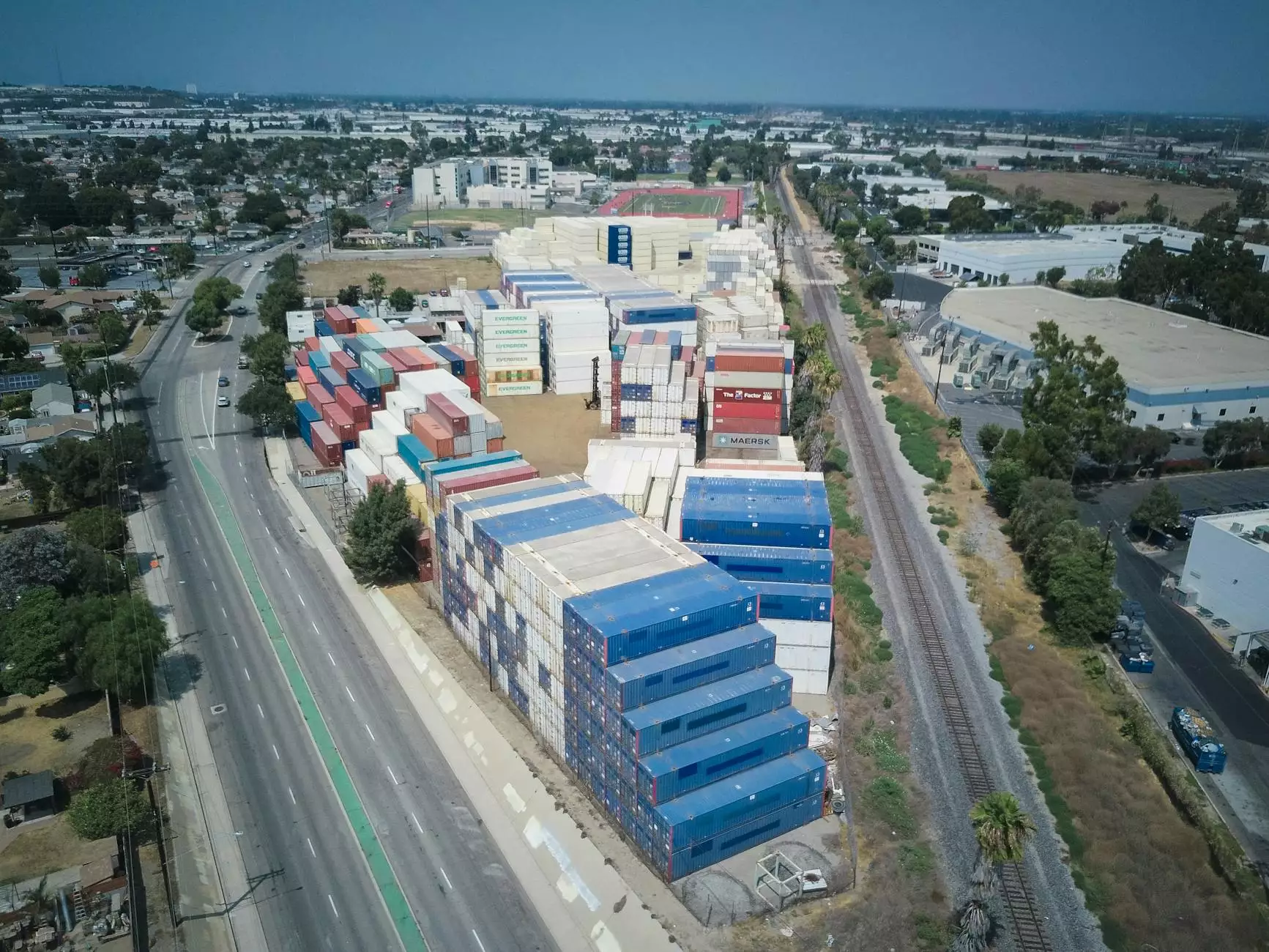Commercial Water Treatment Equipment: Ensuring Water Purity for Businesses

In an era where clean water is becoming increasingly scarce, the significance of commercial water treatment equipment cannot be overstated. Businesses across various sectors rely on effective water treatment solutions to ensure that their operations run smoothly, while also being compliant with health and environmental regulations. This article will delve deep into the various aspects of commercial water treatment, focusing on its benefits, types of equipment available, and guidance on selecting the best solutions for your specific business needs.
Understanding Water Treatment: The Basics
Water treatment is the process of improving the quality of water to make it suitable for a specific purpose. This can vary from drinking, industrial processes, irrigation, to recreational activities. Commercial water treatment equipment is essential for businesses because it ensures that the water used is clean, safe, and suitable for its intended use.
The Importance of Clean Water for Businesses
For businesses, clean water is not just a necessity but a legal requirement in most jurisdictions. Many industries, such as food and beverage, manufacturing, and healthcare, require strict adherence to water quality standards. The following are some prominent reasons why businesses must invest in commercial water treatment:
- Compliance: Many businesses are required to meet local and federal regulations regarding water quality.
- Health and Safety: Poor quality water can lead to health issues for employees and customers.
- Operational Efficiency: Clean water is crucial for ensuring machinery runs effectively and products maintain quality.
- Environmental Impact: Proper water treatment reduces pollution and conserves water resources.
Types of Commercial Water Treatment Equipment
There is a wide array of commercial water treatment equipment designed to meet different needs. Each type of equipment serves specific purposes and is suitable for various applications. Below are the most commonly used types:
1. Water Purification Systems
Water purification systems are designed to remove contaminants and improve water quality. They utilize various methods, such as reverse osmosis, distillation, and filtration. A reliable water purification system is essential for businesses needing high-purity water for processes such as:
- Food and beverage production
- Pharmaceutical manufacturing
- Laboratory research
2. Water Softening Equipment
Water softening is crucial for preventing scale buildup in plumbing and equipment, which can lead to costly maintenance and operational downtimes. Water softeners work by removing calcium and magnesium ions that cause hardness, making it ideal for:
- Hotels and hospitality businesses
- Commercial laundries
- Manufacturing facilities
3. UV Water Treatment Systems
Ultraviolet (UV) water treatment systems use UV light to kill bacteria, viruses, and other pathogens in water without the need for chemicals. Businesses that must ensure the microbiological safety of water, such as:
- Restaurants and cafes
- Aquaculture farms
- Healthcare facilities
4. Filtration Systems
Filtration systems are integral in removing particulate matter, sediment, and certain chemicals from water. They come in various forms such as:
- Activated carbon filters
- Sediment filters
- Membrane filters
Effective filtration ensures better taste, color, and quality of water used in all commercial operations.
5. Chemical Treatment Equipment
Chemical treatment equipment is vital for removing specific contaminants from water. This includes systems for chemical dosing that ensure the right amount of substances are added to make water safe. Common applications include:
- Disinfection using chlorine
- pH adjustment systems
- Coagulation and flocculation systems
Choosing the Right Commercial Water Treatment Equipment
Selecting the right commercial water treatment equipment for your business is critical to ensure optimal performance and compliance. Consider the following factors while making a decision:
1. Identify Your Water Quality Needs
Understanding the specific contaminants present in your water supply is fundamental. Conducting a comprehensive water analysis helps to identify:
- Microbial contaminants (bacteria, viruses)
- Chemical contaminants (heavy metals, pesticides)
- Physical impurities (sediments, turbidity)
2. Assess Your Business Operations
Evaluate the volume of water needed for your operations and the required water quality. Consider if you need equipment that can handle:
- High flow rates
- Continuous operation
- Seasonal water demand fluctuations
3. Compliance with Regulations
Ensure that the equipment meets all local, state, and federal regulations related to water quality. This compliance is necessary to avoid potential fines and shutdowns.
4. Equipment Costs and Maintenance
While initial costs are essential, consider the total cost of ownership, which includes maintenance and operational costs. Look for equipment that offers:
- Energy efficiency
- Durability and longevity
- Easy maintenance and service options
5. Vendor Reputation
Choose manufacturers and suppliers with a solid reputation and proven track record in the industry. A reputable vendor provides:
- Quality assurance
- Customer support and service after installation
- Accessibility to spare parts and upgrades
Innovations in Commercial Water Treatment
The water treatment industry is constantly evolving with new technologies and methods for better efficiency. Some significant innovations include:
1. Smart Water Treatment Systems
Smart technology allows for real-time monitoring and adjustment of water treatment processes. These systems use sensors and IoT devices to:
- Track water quality parameters
- Detect leaks and inefficiencies
- Optimize chemical dosing and energy use
2. Advanced Membrane Technologies
Advancements in membrane filtration technologies have improved the efficiency and effectiveness of water treatment. These include:
- Nanofiltration
- Forward osmosis
- Membrane bioreactors
3. Sustainable Water Treatment Solutions
As environmental concerns rise, many businesses are looking for sustainable options. This includes:
- Water reuse systems
- Aerobic and anaerobic treatment processes
- Natural filtration methods (constructed wetlands)
Conclusion
Investing in high-quality commercial water treatment equipment is not just about meeting regulations; it's about ensuring the health, safety, and sustainability of your business operations. With the right equipment, businesses can enhance their productivity, reduce costs, and contribute positively to the environment. Whether you are in the food and beverage industry, hospitality, manufacturing, or any sector requiring water, understanding the intricacies of water treatment will enable you to make informed decisions that benefit your operations in the long term.
For businesses looking to streamline their water treatment processes, partnering with reliable suppliers such as Bimak Şimya can provide you with the expertise and equipment needed to thrive in today’s competitive landscape. Contact us today to learn more about our comprehensive water purification services, water supplies, and solutions tailored to your specific needs.









